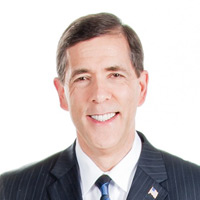A Peek Behind the Mutual Fund Curtain Reveals Cons as Well as Pros
From a cost and risk perspective, mutual funds have a lot going for them, but how well you do with your portfolio depends on how you deal with their weaknesses as well as their strengths.


Profit and prosper with the best of Kiplinger's advice on investing, taxes, retirement, personal finance and much more. Delivered daily. Enter your email in the box and click Sign Me Up.
You are now subscribed
Your newsletter sign-up was successful
Want to add more newsletters?

Delivered daily
Kiplinger Today
Profit and prosper with the best of Kiplinger's advice on investing, taxes, retirement, personal finance and much more delivered daily. Smart money moves start here.

Sent five days a week
Kiplinger A Step Ahead
Get practical help to make better financial decisions in your everyday life, from spending to savings on top deals.

Delivered daily
Kiplinger Closing Bell
Get today's biggest financial and investing headlines delivered to your inbox every day the U.S. stock market is open.

Sent twice a week
Kiplinger Adviser Intel
Financial pros across the country share best practices and fresh tactics to preserve and grow your wealth.

Delivered weekly
Kiplinger Tax Tips
Trim your federal and state tax bills with practical tax-planning and tax-cutting strategies.

Sent twice a week
Kiplinger Retirement Tips
Your twice-a-week guide to planning and enjoying a financially secure and richly rewarding retirement

Sent bimonthly.
Kiplinger Adviser Angle
Insights for advisers, wealth managers and other financial professionals.

Sent twice a week
Kiplinger Investing Weekly
Your twice-a-week roundup of promising stocks, funds, companies and industries you should consider, ones you should avoid, and why.

Sent weekly for six weeks
Kiplinger Invest for Retirement
Your step-by-step six-part series on how to invest for retirement, from devising a successful strategy to exactly which investments to choose.
Every financial vehicle comes with a string attached. Sitting in cash pays you next to nothing. The market goes way up, but it also can go way down. CDs have a time commitment. Bonds can hurt you with rising interest rates.
For the average person, this makes investing very intimidating. Not only is it challenging to pick the right amount of market risk vs. safer financial vehicles, but once you get into the nitty-gritty of asset allocation — from stocks vs. bonds, to mutual funds vs. exchange-traded funds (ETFs), to real estate investment trusts (REITs) vs. commodities — it’s not surprising many investors are just sitting in cash.
Mutual Fund Pros
Because of their simplicity, it’s no wonder mutual funds have become so popular. By pooling money from many people, these funds give investors the power to buy a number of diverse securities for a lower price than if they purchased each one individually.
From just $107.88 $24.99 for Kiplinger Personal Finance
Become a smarter, better informed investor. Subscribe from just $107.88 $24.99, plus get up to 4 Special Issues

Sign up for Kiplinger’s Free Newsletters
Profit and prosper with the best of expert advice on investing, taxes, retirement, personal finance and more - straight to your e-mail.
Profit and prosper with the best of expert advice - straight to your e-mail.
About two-thirds of all 401(k) assets are invested into mutual funds. The low-cost passive funds are becoming more and more popular with younger generations and inside of retirement plans, as reducing the fees to next to nothing can really boost your growth potential over 30 to 40 years of saving, especially when you continue to buy-in on market dips.
There are other definite benefits as well:
Easy access: Mutual funds give small investors an opportunity to own stock in multiple companies without having to do the research — or pay the high prices — required of individual investors.
Liquidity: Shares can be bought and sold easily at the end of each business day. Orders are filled after market close, so you can always make changes if you need to or want to.
Access to professional managers: Most mutual funds hire experienced money managers to oversee their accounts. These professionals are dedicated to helping investors reach their objectives and get the best returns they can.
Something for everyone: There are funds for consumers who aren’t afraid of risk, but there are options, as well, for those who prefer less risk. You can buy and hold or get in and get out. You can go big, small or middle of the road. And you can specialize in anything you can think of asset class-wise, based on your interests or objectives.
Mutual Fund Cons
But mutual funds have their downside, too. The very thing that makes them so attractive is also a negative: You’re giving up a large amount of control, which includes:
A lack of control over your portfolio: All decisions are made by the mutual fund manager. You can dump the fund any time you like, but the manager decides which securities within the fund he or she will buy and sell, and when. Managers also have limited control in that they have their set guidelines that only allow a certain level of equity exposure or cash exposure, for instance.
A lack of control over taxes: If you own a stock and sell it for a gain, you’re taxed on that gain. You know this, and you can make decisions based on how it will affect you. You can defer taxation on the appreciated value of your stock shares if necessary.
With a mutual fund, you’re taxed when the fund distributes gains it made selling individual holdings — even if you haven’t sold your shares (unless it’s a Roth IRA, traditional IRA or 401(k) or similar plan). Those capital gains distributions can become a costly and consistent problem if your fund sells holdings frequently. Losses can also be less tax efficient for mutual fund investors. Unlike holding individual securities, a mutual fund structure does not allow for losses on individual fund holdings to be offset against ordinary income for tax purposes.
A lack of control over costs: All mutual funds charge annual expenses, expressed as a percentage: the annual expense ratio. These costs generally are listed in the fund’s prospectus. But what they aren’t required to tell you about are the trading costs buried in the internal workings of each individual fund.
Each time a mutual fund manager buys a security, which is called turnover, the fund incurs a small trading cost. This cost is not factored into the expense ratio and is what we call a “hidden cost,” because you don’t see it.
The Bottom Line
So what does all this mean to you?
Mutual funds have their benefits, but you still have to do some homework before investing in them. When constructing a portfolio, there are three basic considerations you need to keep in mind:
- Know your risk. Set a plan, and don’t let fear or greed cause you to get in or out of the market.
- Find funds that won’t eat into your return with high hidden costs.
- Remember to rebalance your portfolio periodically.
After you’ve done your homework, if you find a fund that suits you, it can be a great way to get into the market and start investing.
Richard W. Paul is the president of Richard W. Paul & Associates, LLC, and the author of “The Baby Boomers’ Retirement Survival Guide: How to Navigate Through the Turbulent Times Ahead.” He is an Investment Adviser Representative and insurance professional.
Kim Franke-Folstad contributed to this article.
Richard W. Paul & Associates, LLC, is a Registered Investment Adviser. Advisory services offered through Richard W. Paul & Associates, LLC. Insurance services offered through Midwest Financial Consultants, Inc. The aforementioned are affiliated companies.
Profit and prosper with the best of Kiplinger's advice on investing, taxes, retirement, personal finance and much more. Delivered daily. Enter your email in the box and click Sign Me Up.

Richard W. Paul is the president of Richard W. Paul & Associates, LLC, and the author of "The Baby Boomers' Retirement Survival Guide: How to Navigate Through the Turbulent Times Ahead." He holds life and health insurance licenses in Michigan and Florida and is a Certified Financial Planner, Registered Financial Consultant, Investment Adviser Representative and insurance professional.
-
 Nasdaq Leads a Rocky Risk-On Rally: Stock Market Today
Nasdaq Leads a Rocky Risk-On Rally: Stock Market TodayAnother worrying bout of late-session weakness couldn't take down the main equity indexes on Wednesday.
-
 Quiz: Do You Know How to Avoid the "Medigap Trap?"
Quiz: Do You Know How to Avoid the "Medigap Trap?"Quiz Test your basic knowledge of the "Medigap Trap" in our quick quiz.
-
 5 Top Tax-Efficient Mutual Funds for Smarter Investing
5 Top Tax-Efficient Mutual Funds for Smarter InvestingMutual funds are many things, but "tax-friendly" usually isn't one of them. These are the exceptions.
-
 Social Security Break-Even Math Is Helpful, But Don't Let It Dictate When You'll File
Social Security Break-Even Math Is Helpful, But Don't Let It Dictate When You'll FileYour Social Security break-even age tells you how long you'd need to live for delaying to pay off, but shouldn't be the sole basis for deciding when to claim.
-
 I'm an Opportunity Zone Pro: This Is How to Deliver Roth-Like Tax-Free Growth (Without Contribution Limits)
I'm an Opportunity Zone Pro: This Is How to Deliver Roth-Like Tax-Free Growth (Without Contribution Limits)Investors who combine Roth IRAs, the gold standard of tax-free savings, with qualified opportunity funds could enjoy decades of tax-free growth.
-
 One of the Most Powerful Wealth-Building Moves a Woman Can Make: A Midcareer Pivot
One of the Most Powerful Wealth-Building Moves a Woman Can Make: A Midcareer PivotIf it feels like you can't sustain what you're doing for the next 20 years, it's time for an honest look at what's draining you and what energizes you.
-
 I'm a Wealth Adviser Obsessed With Mahjong: Here Are 8 Ways It Can Teach Us How to Manage Our Money
I'm a Wealth Adviser Obsessed With Mahjong: Here Are 8 Ways It Can Teach Us How to Manage Our MoneyThis increasingly popular Chinese game can teach us not only how to help manage our money but also how important it is to connect with other people.
-
 Looking for a Financial Book That Won't Put Your Young Adult to Sleep? This One Makes 'Cents'
Looking for a Financial Book That Won't Put Your Young Adult to Sleep? This One Makes 'Cents'"Wealth Your Way" by Cosmo DeStefano offers a highly accessible guide for young adults and their parents on building wealth through simple, consistent habits.
-
 Global Uncertainty Has Investors Running Scared: This Is How Advisers Can Reassure Them
Global Uncertainty Has Investors Running Scared: This Is How Advisers Can Reassure ThemHow can advisers reassure clients nervous about their plans in an increasingly complex and rapidly changing world? This conversational framework provides the key.
-
 I'm a Real Estate Investing Pro: This Is How to Use 1031 Exchanges to Scale Up Your Real Estate Empire
I'm a Real Estate Investing Pro: This Is How to Use 1031 Exchanges to Scale Up Your Real Estate EmpireSmall rental properties can be excellent investments, but you can use 1031 exchanges to transition to commercial real estate for bigger wealth-building.
-
 Should You Jump on the Roth Conversion Bandwagon? A Financial Adviser Weighs In
Should You Jump on the Roth Conversion Bandwagon? A Financial Adviser Weighs InRoth conversions are all the rage, but what works well for one household can cause financial strain for another. This is what you should consider before moving ahead.